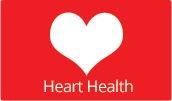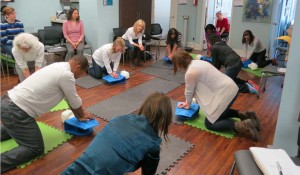 The goal of this program is to support people with cardiovascular disease or at risk of developing cardiovascular disease. Services include cholesterol reduction counseling, medication reviews, in-depth hypertension counselling and anti-coagulation monitoring.
The goal of this program is to support people with cardiovascular disease or at risk of developing cardiovascular disease. Services include cholesterol reduction counseling, medication reviews, in-depth hypertension counselling and anti-coagulation monitoring.
Patients with cardiovascular disease or at risk of developing a cardiovascular disease (e.g. angina, coronary artery disease, hypertension) would benefit from a primary care provider referral (your physician or nurse practitioner) to this program.
Clinicians
Pharmacist/RN: Monitors pat ients on warfarin, provides medication reviews and provides in-depth hypertension counselling.
ients on warfarin, provides medication reviews and provides in-depth hypertension counselling.
Dietitian: Provides individual counseling for elevated cholesterol, high blood pressure and overall education on healthy eating for disease prevention; facilitates a Mindful Nutrition Group that teaches concepts on health behaviours and intuitive eating. Speak to your Primary Care Provider to see if the group would be a good fit for you.
